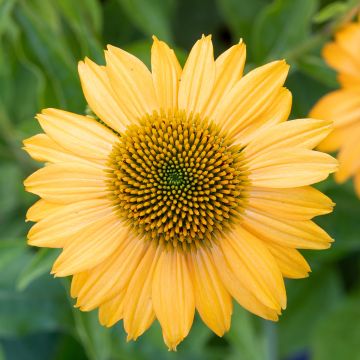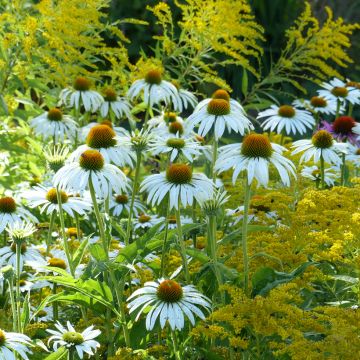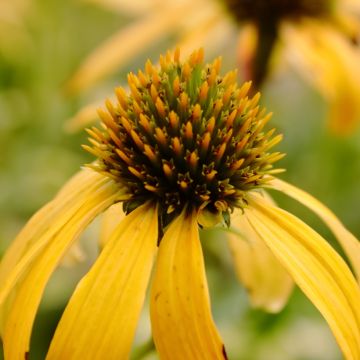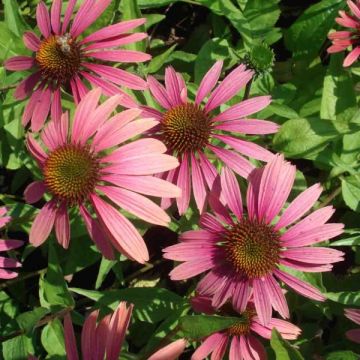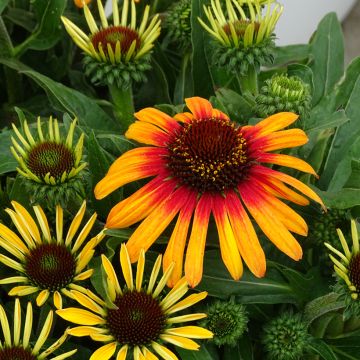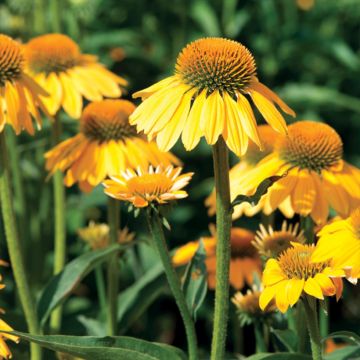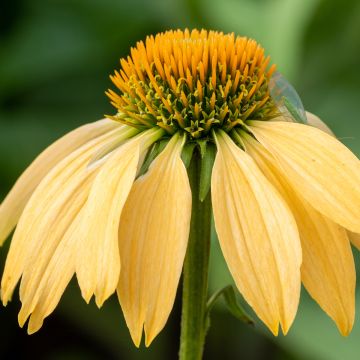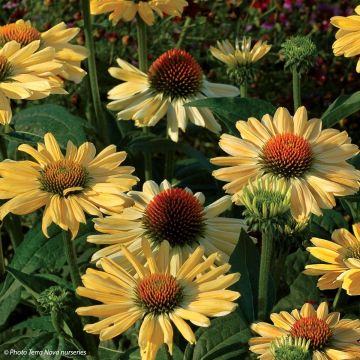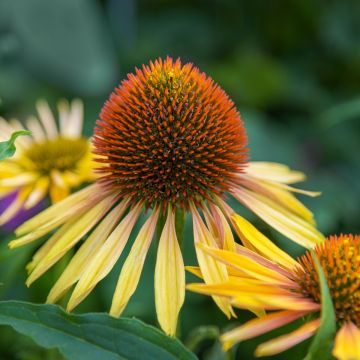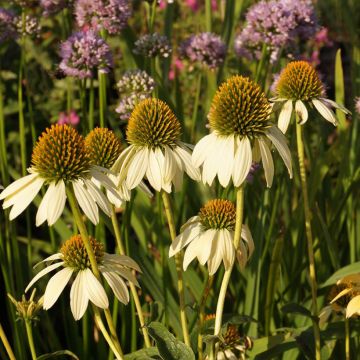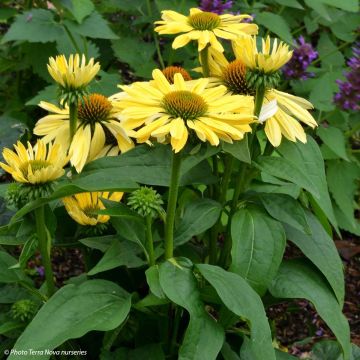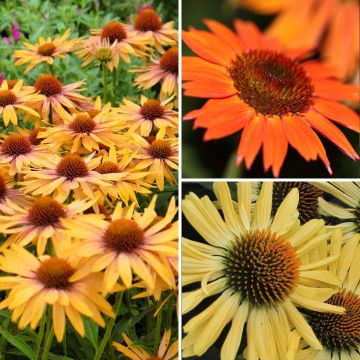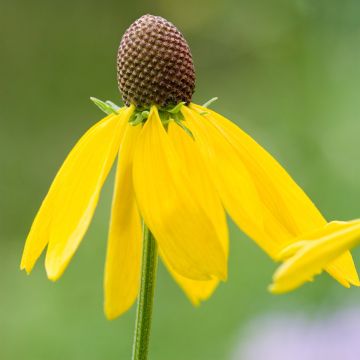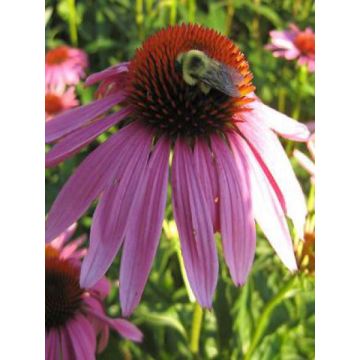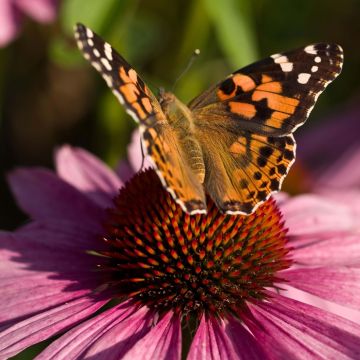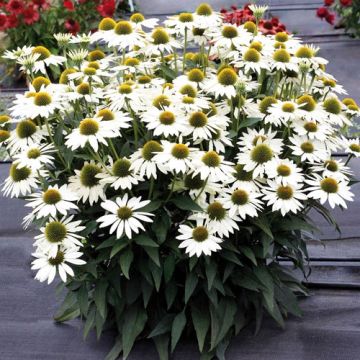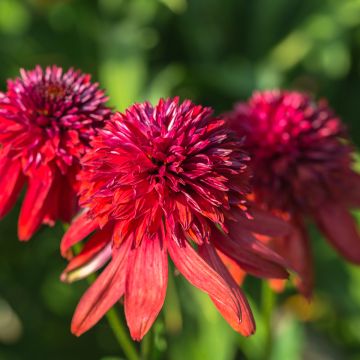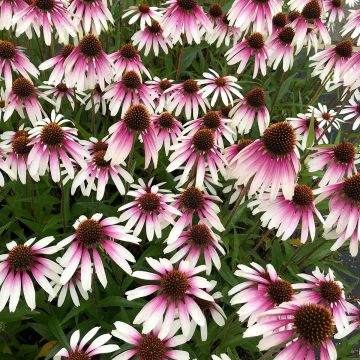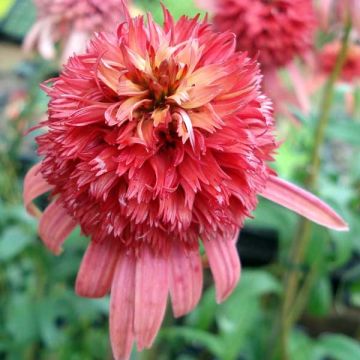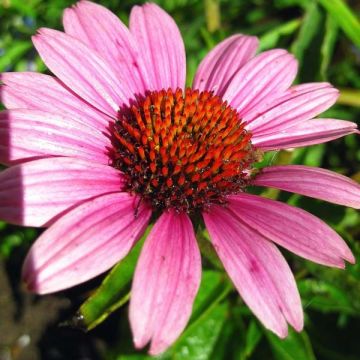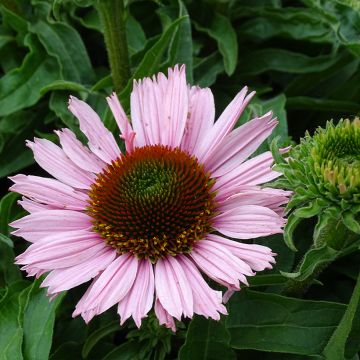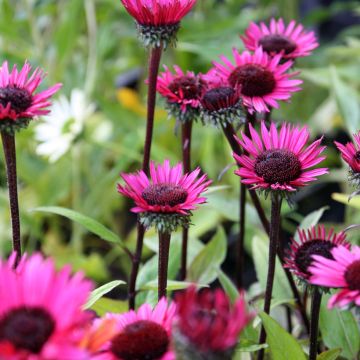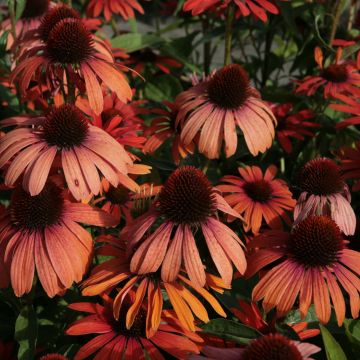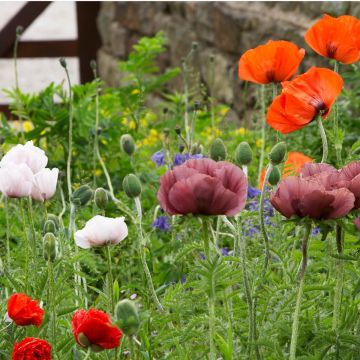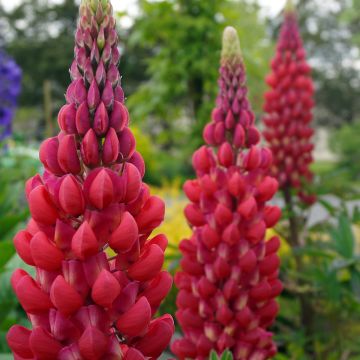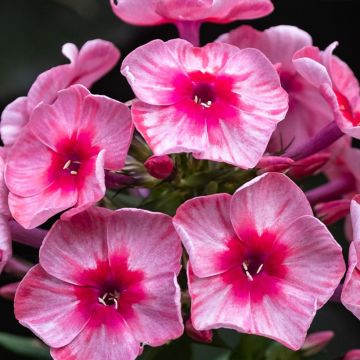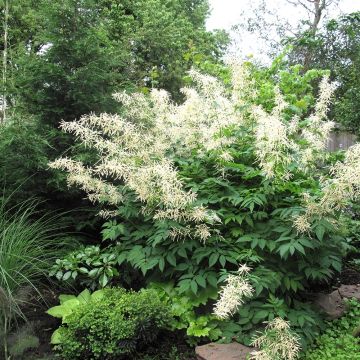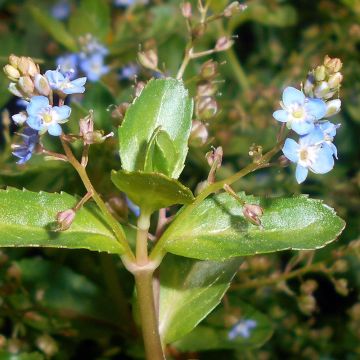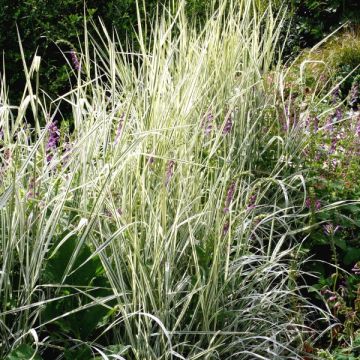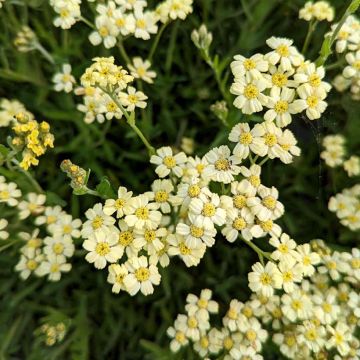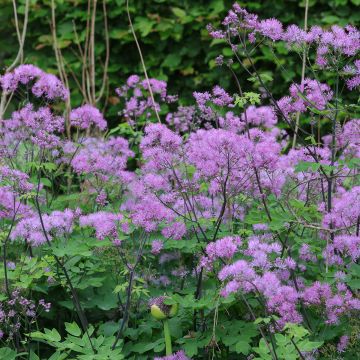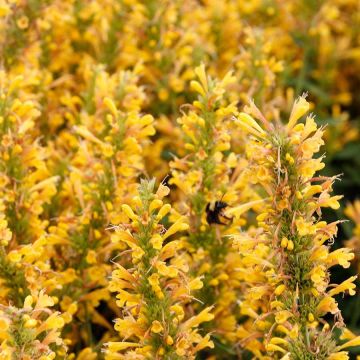Shipping country and language
Your country of residence may be:
Your country of residence is:
For a better user experience on our website, you can select:
Your shipping country:
Andorra
Austria
Belgium
Bulgaria
Canada
Chile
Croatia
Cyprus
Czechia
Denmark
Estonia
Finland
France
Germany
Greece
Hungary
Iceland
Ireland
Italy
Latvia
Lithuania
Luxembourg
Malta
Monaco
Netherlands
Poland
Portugal
Romania
Slovakia
Slovenia
Spain
Sweden
Switzerland
United Kingdom
We only deliver seed and bulb products to your country. If you add other products to your basket, they cannot be shipped.
Language:
French
German
Spanish
English
My Account
Hello
My wish lists
Plantfit
Log in / Register
Existing customer?
New customer?
Create an account to track your orders, access our customer service and, if you wish, make the most of our upcoming offers.
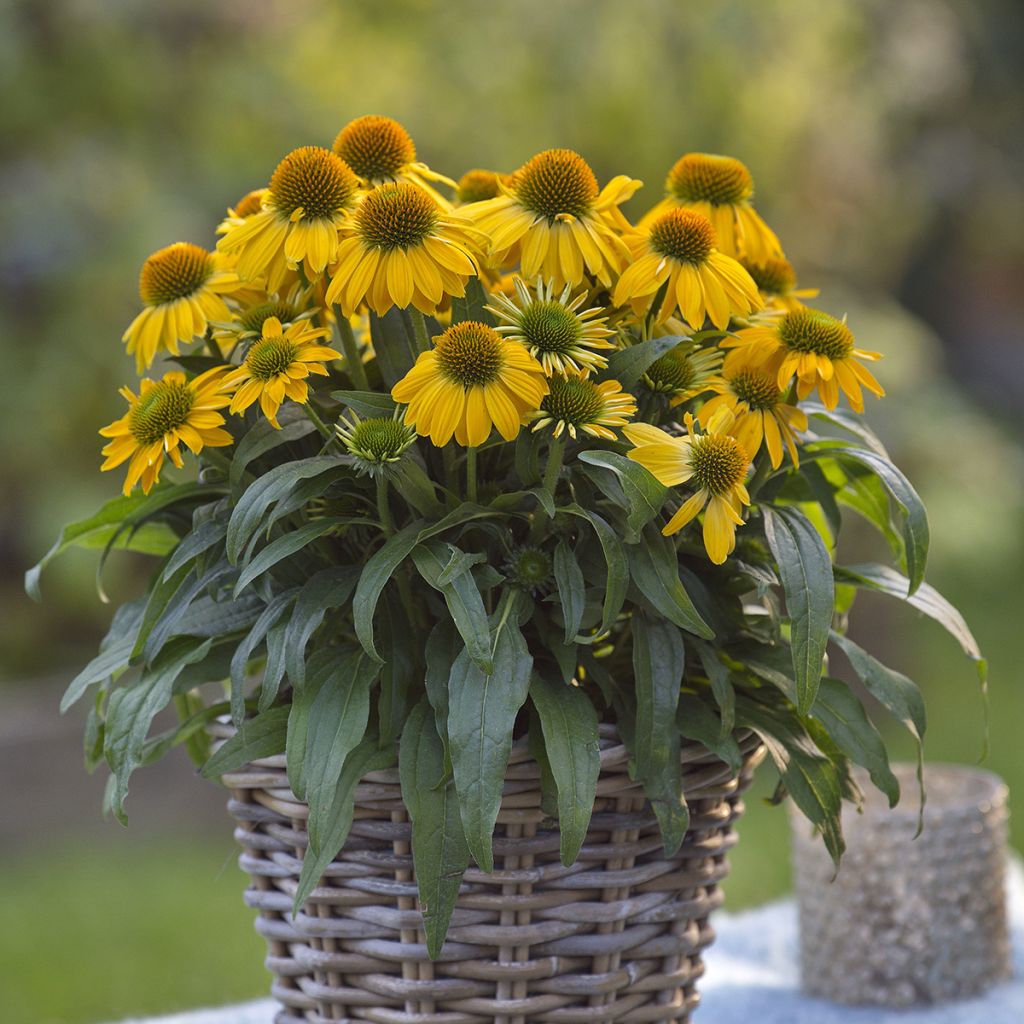

Echinacea purpurea Sun Magic Vintage Yellow - Purple Coneflower
Echinacea purpurea Sun Magic Vintage Yellow - Purple Coneflower
Echinacea purpurea Sun Magic Vintage Yellow ®
Eastern purple coneflower, Purple coneflower
Why not try an alternative variety in stock?
View all →Order in the next for dispatch today!
Dispatch by letter from €3.90.
Delivery charge from €5.90 Oversize package delivery charge from €6.90.
More information
This item is not available in your country.
Schedule delivery date,
and select date in basket
This plant carries a 12 months recovery warranty
More information
We guarantee the quality of our plants for a full growing cycle, and will replace at our expense any plant that fails to recover under normal climatic and planting conditions.
From €5.90 for pickup delivery and €6.90 for home delivery
Express home delivery from €8.90.
Does this plant fit my garden?
Set up your Plantfit profile →
Description
Echinacea Sun Magic® 'Vintage Yellow' is a variety of Echinacea with distinctly optimistic flowers. The colour of the sun, its large daisies are flat and horizontal, giving the plant a dynamic and cheerful appearance. Its sturdy stems bear numerous flowers throughout the summer. This perennial brightens up flower beds, sunny borders, or flower pots from the first year onwards.
Echinacea purpurea 'Vintage Yellow' belongs to the Asteraceae family. It is a horticultural creation resulting from, among others, Echinacea purpurea, native to the western United States, from Georgia to Michigan through Oklahoma and Ohio. 'Vintage Yellow' has a sturdy, bushy, upright, and dense habit, reaching 60cm (24in) in height and 45cm (18in) in width. The opposite, lanceolate, green leaves are bristly with rough hairs. Flowering occurs from July to September, and it is slightly fragrant and highly visited by butterflies. The branched stems are topped with a solitary head, measuring 10 to 12cm (4 to 5in) in diameter, with a disc surrounded by a collar of horizontal or slightly trailing ligules in golden yellow. The fruit is an achene that releases seeds that birds are fond of. This plant firmly and deeply roots itself in the soil with its highly developed root system.
Echinacea 'Vintage Yellow' is a hardy plant that adapts to difficult conditions, occasionally tolerating intense heat, humidity, and drought. Its flowering brings dynamism and cheerfulness to flower beds. Play with similar-coloured blooms but different shapes, such as those of daylilies, and Monardas. Its warm colours look stunning next to the golden or pink spikes of ornamental grasses like Stipa tenuifolia, Schizachyrium scoparium, or Muhlenbergia capillaris. Its vibrant combination with another foliage plant, Alchemilla mollis, is stunning. Lastly, it brightens up fresh or dried flower bouquets.
Note: Attention, our young plug plants are professional products reserved for experienced gardeners: upon receipt, transplant them as soon as possible, in pots, containers, or directly in flower beds.
Flowering
Foliage
Plant habit
Botanical data
Echinacea
purpurea
Sun Magic Vintage Yellow ®
Asteraceae
Eastern purple coneflower, Purple coneflower
Cultivar or hybrid
Other Echinacea - Coneflower
Planting and care
Plant them in a cool and deep, well-worked soil, in a sunny location. These vigorous plants are greedy and will thrive better if you regularly provide them with a good fertilizer. Cut back faded flowers in late summer to prevent invasive sowing.
Echinaceas fear waterlogged soils in winter. The soil must be deep and loose to accommodate its root system. Cut off faded flowers as they appear. Divide the clump when flowering slows down. Mulch the base in May to retain moisture in summer, as it is sensitive to lack of water during flowering.
Planting period
Intended location
Care
This item has not been reviewed yet - be the first to leave a review about it.
Summer flowering perennials
Haven't found what you were looking for?
Hardiness is the lowest winter temperature a plant can endure without suffering serious damage or even dying. However, hardiness is affected by location (a sheltered area, such as a patio), protection (winter cover) and soil type (hardiness is improved by well-drained soil).

Photo Sharing Terms & Conditions
In order to encourage gardeners to interact and share their experiences, Promesse de fleurs offers various media enabling content to be uploaded onto its Site - in particular via the ‘Photo sharing’ module.
The User agrees to refrain from:
- Posting any content that is illegal, prejudicial, insulting, racist, inciteful to hatred, revisionist, contrary to public decency, that infringes on privacy or on the privacy rights of third parties, in particular the publicity rights of persons and goods, intellectual property rights, or the right to privacy.
- Submitting content on behalf of a third party;
- Impersonate the identity of a third party and/or publish any personal information about a third party;
In general, the User undertakes to refrain from any unethical behaviour.
All Content (in particular text, comments, files, images, photos, videos, creative works, etc.), which may be subject to property or intellectual property rights, image or other private rights, shall remain the property of the User, subject to the limited rights granted by the terms of the licence granted by Promesse de fleurs as stated below. Users are at liberty to publish or not to publish such Content on the Site, notably via the ‘Photo Sharing’ facility, and accept that this Content shall be made public and freely accessible, notably on the Internet.
Users further acknowledge, undertake to have ,and guarantee that they hold all necessary rights and permissions to publish such material on the Site, in particular with regard to the legislation in force pertaining to any privacy, property, intellectual property, image, or contractual rights, or rights of any other nature. By publishing such Content on the Site, Users acknowledge accepting full liability as publishers of the Content within the meaning of the law, and grant Promesse de fleurs, free of charge, an inclusive, worldwide licence for the said Content for the entire duration of its publication, including all reproduction, representation, up/downloading, displaying, performing, transmission, and storage rights.
Users also grant permission for their name to be linked to the Content and accept that this link may not always be made available.
By engaging in posting material, Users consent to their Content becoming automatically accessible on the Internet, in particular on other sites and/or blogs and/or web pages of the Promesse de fleurs site, including in particular social pages and the Promesse de fleurs catalogue.
Users may secure the removal of entrusted content free of charge by issuing a simple request via our contact form.
The flowering period indicated on our website applies to countries and regions located in USDA zone 8 (France, the United Kingdom, Ireland, the Netherlands, etc.)
It will vary according to where you live:
- In zones 9 to 10 (Italy, Spain, Greece, etc.), flowering will occur about 2 to 4 weeks earlier.
- In zones 6 to 7 (Germany, Poland, Slovenia, and lower mountainous regions), flowering will be delayed by 2 to 3 weeks.
- In zone 5 (Central Europe, Scandinavia), blooming will be delayed by 3 to 5 weeks.
In temperate climates, pruning of spring-flowering shrubs (forsythia, spireas, etc.) should be done just after flowering.
Pruning of summer-flowering shrubs (Indian Lilac, Perovskia, etc.) can be done in winter or spring.
In cold regions as well as with frost-sensitive plants, avoid pruning too early when severe frosts may still occur.
The planting period indicated on our website applies to countries and regions located in USDA zone 8 (France, United Kingdom, Ireland, Netherlands).
It will vary according to where you live:
- In Mediterranean zones (Marseille, Madrid, Milan, etc.), autumn and winter are the best planting periods.
- In continental zones (Strasbourg, Munich, Vienna, etc.), delay planting by 2 to 3 weeks in spring and bring it forward by 2 to 4 weeks in autumn.
- In mountainous regions (the Alps, Pyrenees, Carpathians, etc.), it is best to plant in late spring (May-June) or late summer (August-September).
The harvesting period indicated on our website applies to countries and regions in USDA zone 8 (France, England, Ireland, the Netherlands).
In colder areas (Scandinavia, Poland, Austria...) fruit and vegetable harvests are likely to be delayed by 3-4 weeks.
In warmer areas (Italy, Spain, Greece, etc.), harvesting will probably take place earlier, depending on weather conditions.
The sowing periods indicated on our website apply to countries and regions within USDA Zone 8 (France, UK, Ireland, Netherlands).
In colder areas (Scandinavia, Poland, Austria...), delay any outdoor sowing by 3-4 weeks, or sow under glass.
In warmer climes (Italy, Spain, Greece, etc.), bring outdoor sowing forward by a few weeks.
